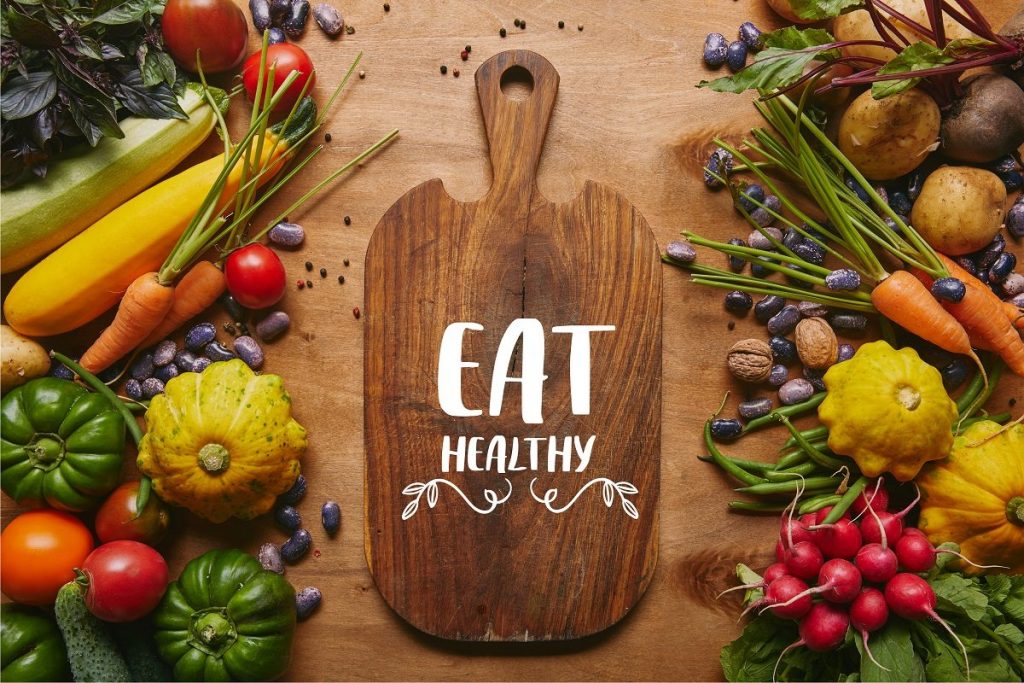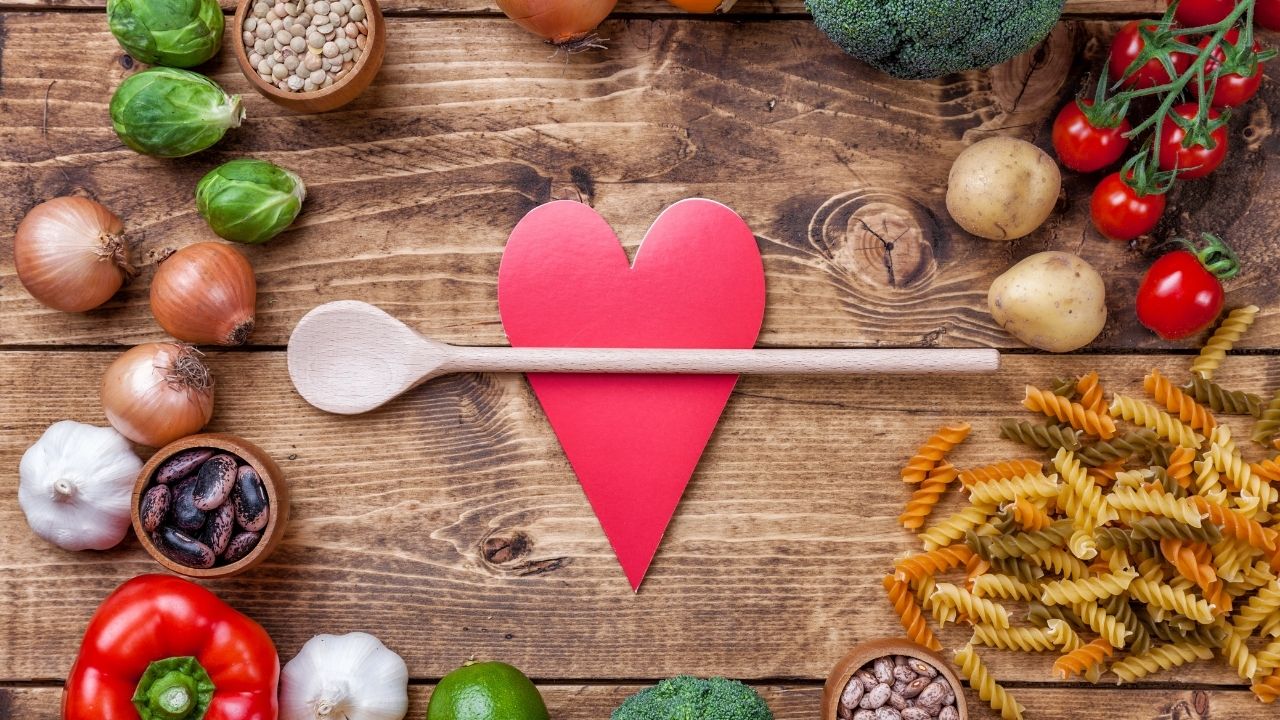Following a healthy diet with balanced vitamins, minerals, and fiber intake can prevent many chronic diseases, such as cardiovascular issues, immunological disorders, and diabetes, in addition to its role in psychological health enhancement.
Your body indeed needs all types of nutrition, but at specific levels; always relying on fats-rich foods with no vegetables, for instance, can lead to anemia or obesity. It is not that hard to maintain a balanced diet, but it takes awareness and self-control.
Components of a healthy diet:

Fruits and Vegetables:
You should ensure taking five portions of fruits and vegetables a day. Your digestive system can process them efficiently; they are free of synthetic substances and rich with fibers, vitamins, minerals, and antioxidants.
Try to include fruits like carrots, blueberries, and oranges as they are rich with antioxidants. Not to mention, leafy vegetables contain high amounts of Calcium and Iron necessary for cardiovascular system health.
Legumes and Grains:
You should include whole grains like oatmeal, wheat, and malt in your diet since they contain high quantities of fibers, minerals, and vitamins (especially B complex). Try to replace white bread with brown bread, which would significantly reduce blood sugar levels.
As for legumes, such as peas, beans, and lentils, they are the primary source of iron and fibers. Besides, they contain high plant-proteins levels.
Fats:
Unsaturated fats:
- Monounsaturated fats are present in nuts, olive oil, and avocado.
- Polyunsaturated fats are present in fish and soy-milk.
Saturated fats:
They are present in meat, animal-derived cheese and butter, and coconut oil.
They are not as harmful as people think. On the contrary, they play a significant role in maintaining HDL, “good” Cholesterol levels in the blood, reducing the risk of heart diseases and joint pain. They also provide Omega-3 that is super beneficial for mental health as it reduces depression symptoms and memory loss.
However, saturated fats intake should be low, less than 10% of your daily diet, to avoid obesity and increased LDL levels, “bad” Cholesterol.
Synthetic unsaturated fats:
They include plant-derived butter and fried foods. These are harmful with no health benefits, and you should avoid them.
Salt:
Salt contains Sodium, which is essential for the heart’s health. However, too much salt intake due to high canned and synthetic food consumption can result in high blood pressure.
The World Health Organization recommends consuming less than 5 grams a day of salt and avoiding canned foods.
Sugar:
We all enjoy sweets and the associated Dopamine rush. Yet, you should consider replacing white sugar with natural sweetening substances like honey and dates, as the former can result in high blood sugar, obesity, and teeth cavities, with no actual health benefits.
It is advisable to have less than 50 grams of sweets daily if you are in a healthy weight range.
Water:
Make sure you drink 8 – 10 glasses of water daily as it carries significant benefits:
- It helps your body digest food.
- It increases your body’s flexibility.
- It restores your skin’s youthfulness.
- It makes up for sweating-associated water loss.
- It removes toxins from your body.
- It enhances organs’ functionality, especially the kidneys’.
Healthy diet recommendations:
- Avoid fast foods, and rely more on cooking.
- Avoid unhealthy eating habits: reduce fried foods consumption, and replace them with grilled or steamed ones. You can also replace synthetic plant butter with olive oil.
- Read canned food labels to figure out how much salt or sugar they contain; avoid high levels of these substances and replace them with healthier foods.
- Eat and chew slowly, and try to stop eating before you feel full.
- Do NOT deprive yourself of foods you like; balance the portions.
Read more: Types of diets and how to choose the best for you?
Don’t forget to visit MetroBrazil store to get the best corsets for sports and body shaping.
